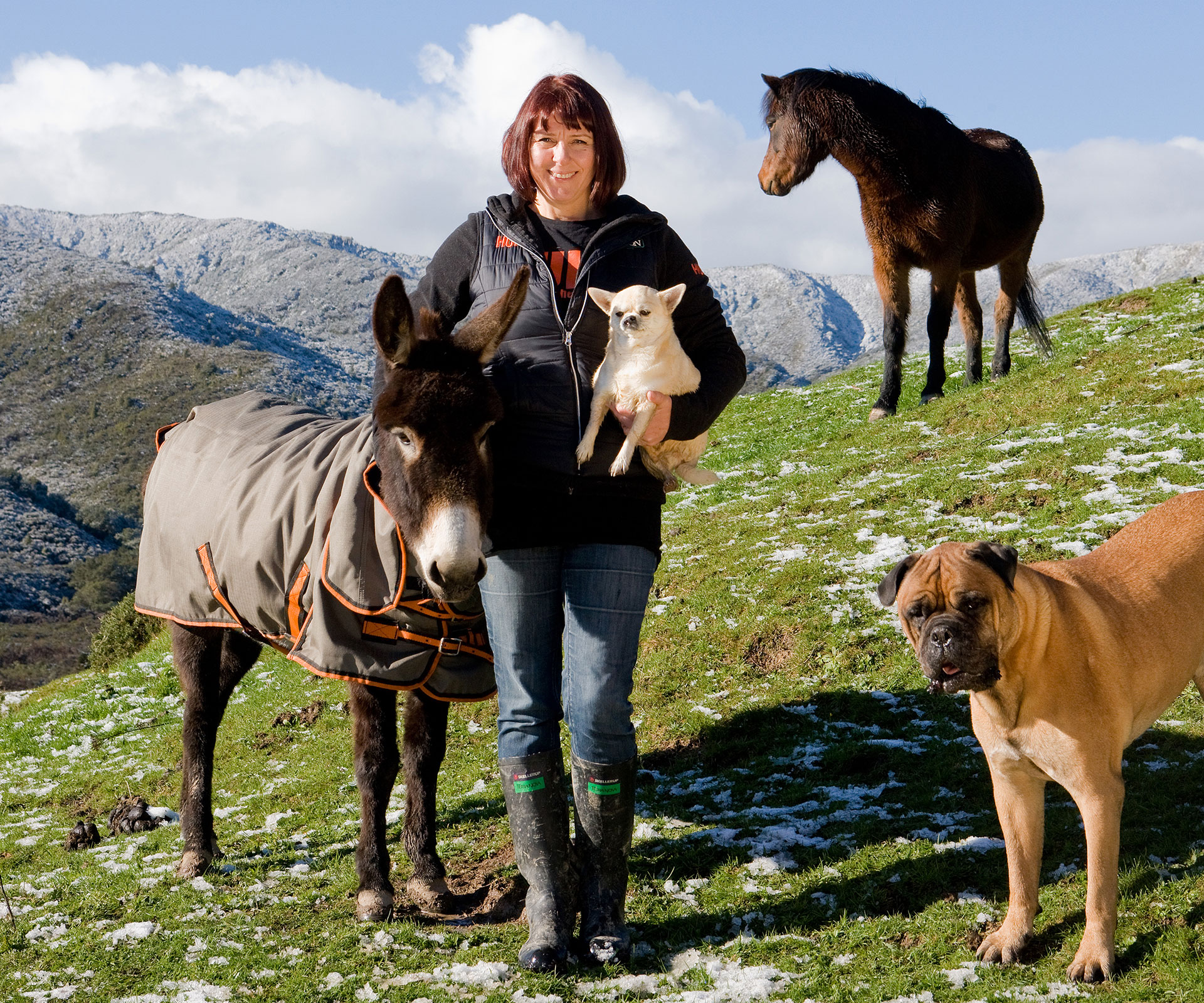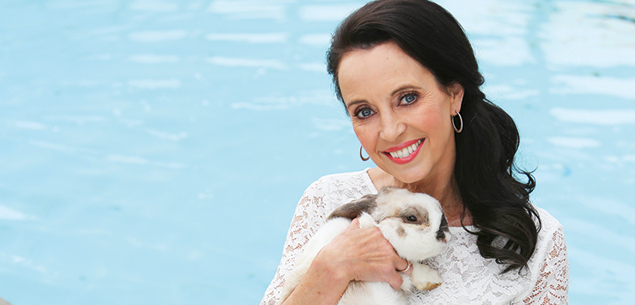It’s 4am and Carolyn Press-McKenzie is already up, typing away in the quietest moment she’ll get all day. In a few hours, the phone will be ringing off the hook and, by dusk, there’ll probably be a couple more animals added to the menagerie of parrots, sheep, cows and dogs outside.
Press-McKenzie runs two animal shelters with a strict “no kill” policy – one from her home in Kaitoke, north of Upper Hutt, where she and her partner, Jim, have lived for the past 15 years, and another in Otaki, on the Kapiti Coast.
Her entire life has been dedicated to animal welfare, an obsession that began with a childhood cat named Blue. In a career that began with a job shovelling horse poo at the age of 16, she’s worked as an animal trainer for feature films and television series, as a locum vet nurse and become a TV personality – experiences that inspired her new book, Animal Magic, which she wrote to raise awareness about animal welfare in New Zealand.
She and Jim ran a small animal sanctuary at their property in Kaitoke for eight years before founding Huha (Helping You Help Animals, huha.org.nz. The two shelters they now operate are not-for-profit and are run by a team of volunteers. All types of animals are rescued, whether it’s because of ill health, abandonment or abuse, and then nurtured until they’re ready to be rehomed.
“Essentially it’s like they’re living at camp,” she says. “They have all that enrichment with the other animals, volunteers and activities.”

Phoebe, one of the wallabies, and Weemu, the emu, who thinks other emus are “a bit beneath her”, says Press-McKenzie.
With the exception of the horses and female pigs, all animals are desexed at Huha in keeping with a “no balls” policy. Press-McKenzie is vehement that a lot of homelessness and abuse can be traced back to indiscriminate breeding. “Although we’re very positive, it really pushes us to the limit. We need to start changing the perception that it’s okay to breed. As soon as you try to profit from an animal, it’s very hard to balance welfare with profit – and that goes right across the board, from farming to puppy milling.”
A kind of animal whisperer (although being called that would make her cringe), Press-McKenzie works on a mix of instinct and monitoring an animal’s behaviour to figure out its needs. Her success stories include training an aggressive gang-raised Staffy cross for a movie role, and curing a neglected ex-circus monkey named Rachel by giving her a Tigger toy after realising she needed a “friend”.
It’s tough and sometimes heart-breaking business for Press-McKenzie, but she says Jim and her two stepchildren help keep her sane. “I’m really lucky with Jim – he’s rocking in the corner most weeks, trying to scrape us through.”

This peacock, whose name is Oliver, was rescued by Huha after it was shot in the leg; Press-McKenzie with Laurie, a former circus monkey; and Ned, a three-legged dog, surveys his domain.
She’s unpaid, yet manages to raise more than $20,000 every month for Huha’s bills. It all comes down to community support, she says, with companies like Countdown supplying vegetable scraps for the pigs, and people sponsoring individual animals with a weekly donation. One month, the vet bills were so high the team couldn’t make ends meet. They did a shout-out on their Facebook page and raised $18,000 overnight.
A favourite part of her day is seeing visitors connect with an animal – and the joy it brings to both parties. “If I could say one thing, it’s that we’ve empowered New Zealanders to take back animal welfare,” says Press-McKenzie, who’s busy writing a sequel to Animal Magic. “We are so driven as a team. There isn’t a corner of New Zealand we won’t reach.”
Words by: India Hendrikse
Photos: Nicola Edmonds

